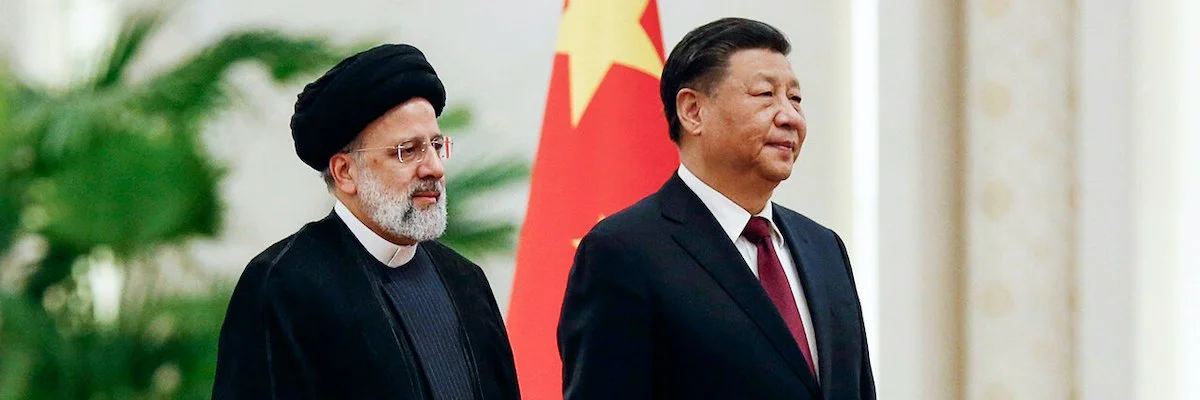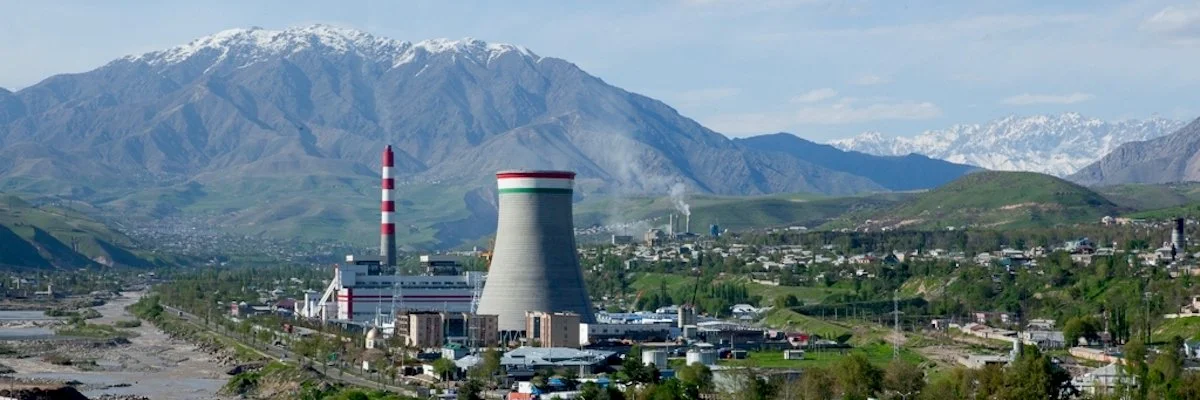Iran's Special Relationship with China Beset by 'Special Issues'
On February 14, Iranian president Ebrahim Raisi flew to China for a three-day state visit at the invitation of Xi Jinping, marking the first full state visit by an Iranian president in two decades. For Beijing, hosting Raisi was an attempt to regain Tehran’s trust after the significant controversy generated by the China-GCC joint statement issued following Xi’s visit to Riyadh in December. For Tehran, taking a large delegation to Beijing was an opportunity to remind the world that China and Iran enjoy a special relationship.
On the eve of the visit, Iran, a government newspaper, published a 120-page special issue of its economic insert entirely focused on China-Iran relations. Given the newspaper’s affiliation and the timing of the publication, the special issue is something like a white paper on the Raisi administration’s China policy and the perceived importance of a functional partnership with China.
The cover of the special issue speaks for itself—it calls for the creation of a triangular trade relationship between Iran, China, and Russia. Another headline declares that the Raisi administration is “reconstructing broken Iran-China ties.” In his pre-departure remarks, Raisi doubled down on this message, noting that Iran “has to pursue compensation for the dysfunction that existed up until now in its relations with China.” With this statement, Raisi both cast blame on Hassan Rouhani, his predecessor, for failing to maintain stronger ties with China, while also implying that China had let Iran down by failing to begin implementation of a 25-year Comprehensive Strategic Partnership agreement signed in 2021.
Iran’s grievances aside, the overall tone of the special issue is laudatory, suggesting that the Raisi administration has chosen to overlook China’s apparent endorsement of the UAE’s claim over the three contested Persian Gulf islands, which caused an uproar in Iran following the China-GCC consultations in December. But a development just before Raisi’s trip generated new controversy.
According to reports, Chinese oil major Sinopec has withdrawn from investing in the significant Yadavaran oil field located on the Iran-Iraq border. The Iranian government began negotiating with Sinopec in 2019 to develop the project's second phase. The negotiations were slow-going, in part because of the challenges created by US secondary sanctions.
Fereydoun Kurd Zanganeh, a senior official at the National Iranian Oil Company (NIOC), has denied the reports, claiming that negotiations with Sinpoec are ongoing. According to him, the Chinese energy company “has not yet announced in any way that it will not cooperate in the development of the Yadavaran field.” Whether or not Sinopec has actually withdrawn from Yadavaran, the slow pace of the negotiations and the difficulty for Chinese companies to deliver major projects—as in the case of Phase 11 of the South Pars gas field—reflect that China is an unreliable partner for Iran, at least while Iran remains under sanctions.
Nonetheless, the Raisi administration is keen to attract more Chinese investment. In an interview with ISNA published on January 28, Ali Fekri, a deputy economy minister, said that he “is not happy with the volume of the Chinese investment in Iran, as they have much greater capacity.” According Fekri, since the Raisi administration took office, the Chinese have invested $185 million in 25 projects, comprising of “21 industrial projects, two mining projects, one service project, and one agricultural project.” As indicated by the low dollar value relative to the number of investments, Chinese commitments have been limited to small and medium-sized projects. Beijing has mainly invested in projects that, according to Fekri, offer China the opportunity to import goods from Iran.
Comparative data shows Iran falling behind other countries in the race to attract Chinese investment. For instance, according to the data complied by the American Enterprise Institute, China committed $610 million in Iraq and a striking $5.5 billion in Saudi Arabia in 2022 alone. With secondary sanctions in place, the prospect of more Chinese investments in Iran is unrealistic.
Despite these obvious challenges, Iranian officials have been reluctant to admit that external factors are shaping China-Iran relations. Ahead of Raisi’s departure to China, Alireza Peyman Pak, the head of the Iran Trade Promotion Organization (ITPO), denied that Xi Jinping’s visit to Saudi Arabia in December had precipitated a cooling of Beijing’s relations with Tehran.
“Such an interpretation is by no means correct. A country with an economy of $6 trillion naturally tries to develop its economy by working with all countries,” he said. Peyman Pak pointed to recent trade data to bolster his case. “In the past ten months, we have seen a 10 percent growth in exports to China compared to the same period last year,” he added, leaving out that the growth comes from a low base—China-Iran trade has languished since 2018.
In recent months, Peyman Pak has played a prominent role in brokering memorandums of understanding between Russian and Iranian companies—part of the push for a deeper Russia-Iran economic partnership. His participation in the delegation heading to China suggests that the Raisi administration is serious about shaping a triangular trade alliance between Tehran, Moscow, and Beijing. So far, that economic alliance exists only in the form of various non-binding agreements. China and Iran signed 20 agreements worth $10 billion during Raisi’s visit.
These agreements, like those before them, have a low chance of being implemented, especially while the future of the JCPOA remains in doubt. For now, China-Iran relations are limited to the text of white papers, memorandums, and statements. For his part, Xi offered Raisi some encouraging words. He reiterated China’s opposition to “external forces interfering in Iran’s internal affairs and undermining Iran’s security and stability” and promised to work with Iran on “issues involving each other’s core interests.” No doubt, the special relationship between China and Iran is beset by special issues.
Photo: IRNA




